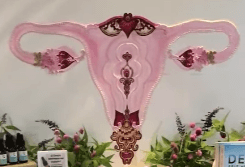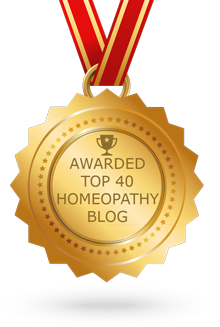It’s a bit of a running joke among women, especially mums between mid-thirties to late fifties, and often beyond. Libido? What libido? Hah, try having a libido when you’re working long hours, slogging through the vast majority of the housework and mental load, dealing with kids and all their needs, and then what’s left over maybe goes to your partner (if there is one) in the form of a quick conversation or cuppa as you both rush the kids to their after school activities or grocery shopping or quick dinner cooking etc etc. The daily grind is all-encompassing and often it’s those special moments with your partner that are left behind in the chaos. Or, if you don’t currently have a partner, those special moments with your own self to nurture and appreciate and allow pleasure in your life.
Add in the hormonal changes of perimenopause, not to mention the many post-menopausal challenges, and we now have a serious problem. You might be battling with thinning vaginal membranes, lethargy, meno-fury (if you know, you know), mysterious extra cushioning of certain body areas leading to body confidence issues, insomnia and the million other problems that arise around this time. It’s no wonder that the guttering little spark of libido dwindles down to a wisp of tired smoke that disperses to nothing in the breeze.
After working with women of all ages in hormonal health, what I’ve noticed is that a lack of libido is not just common, it’s almost across the board. And not just in menopausal women, but also much younger as well. This makes sense when you take into account the fact that loss of progesterone starts as young as thirty-five years of age, and progesterone is one of our hormones responsible for libido. Progesterone is also a very important feel-good hormone (among hundreds of other functions).
So many women see nurturing their libido as extra work, something to add to the endless list and not worth the trouble.
Because it’s only our pleasure at stake, and possibly that of our partner, it’s seen as less important than the million other things on the list. It’s not like pleasure is essential to life, like making sure there’s a roof over our heads, meals on the table, keeping the kids alive and well, and basically making sure everything’s not falling apart around us, right? It’s easy to de-prioritise pleasure. It’s an invisible quality in our lives (if we still have it in our lives, that is). I know there are other types of pleasure aside from the carnal variety. But what I see in so many women is that if they’ve given up on sexual pleasure, they’ve often likely given up on most other kinds of pleasure as well, like the small glimmers of awesomeness in their everyday lives.
When there’s no pleasure to be taken in life, it’s diagnosed as anhedonia, which is a symptom of depression. We will often sacrifice our pleasure when times get tough, seeing it as secondary to life’s essentials. But is it truly a good idea to live without it?
As mothers, it’s a bit of a societal expectation that we sacrifice everything about ourselves to be there for our kids. There’s also this very yucky subtle message that once we have kids, we’ve reproduced, so we don’t need sexual pleasure any more from a survival-of-the-species perspective. Especially once our fertility starts waning, then it’s kind of expected that we should just quietly fade into crone-hood and dry up into old prunes.
Well, I’m here to remind whoever needs to hear it, that this time of our lives can be a time of renewed spark and interest in pleasure. Perimenopause and menopause can be a reminder that our pleasure centres don’t just crumble into nothingness, and that it can be a time to reignite that spark.
Here are some suggestions that may support the return of libido if you’re really not feeling in the mood
The quality of your relationship with your partner
We know that women’s experience of foreplay starts outside the bedroom, in the form of connection, non-sexual touch and feeling appreciated by their partner. This can be difficult to bring about if your partner is just not on board or you are in a toxic relationship. This topic lies outside the scope of what a blog can achieve and will need extra support. Here’s a resource that may give some support in this area: loveatfirstfight.com/
Past traumas and chronic stress
Considering that at least 2 in 5 people are known to have experienced physical or sexual violence (personally I think it’s far higher than this as this is only counting the reported incidents), it’s highly likely that past traumas can impact our sexual health. Looking at this from a hormone balance perspective, we know that chronic high stress can play an enormous role in not only our attitude to sexuality, but also to our reproductive hormones. Progesterone is especially sensitive to chronic stress and once it drops, we may find ourselves cringing at the thought of the tap on the shoulder from our partner, even without the trauma and stress side of things if it’s taken a dive.
Exhaustion
Exhaustion is of course one of the least sexy states to be in. When you lay back in bed after a massive day with a sigh of relief, then your partner gives you the wink, you are absolutely not alone if you feel the urge to push their hand away and tell them to get lost. There may be many causes of exhaustion, feeling overwhelmed by responsibility aside. It may be helpful to check in and ask yourself some questions about when you first noticed your lower energy, and what underlying causes and triggers may have brought it on. There are many different potential causes for lack of energy, including insomnia, iron deficiency, thyroid issues, food intolerances and chronic inflammation. Homeopathy and naturopathy can be very helpful to support you in these to help you get your mojo back if you’re struggling to peel yourself off the bed in the mornings (or any time of day).
Mood changes
Those of us who are on the journey through perimenopause and menopause will likely be aware of some pretty gnarly mood changes including anxiety, sadness, mild irritation and let’s-get-out-the-meat-cleaver-and-start-hacking rage. These extremes don’t make us feel very sexy either, a lot of the time. It may feel easier to just keep plodding along and trying to power through the days without paying too much attention to these fluctuations. But trust me, this is evidence that the process of menopause is well on its journey. It’s as though a hormonal band-aid gets ripped off. If this resonates, it’s well worth getting some support here. Many mood changes during perimenopause are due to progesterone taking a nosedive in our late thirties, making our systems way more stress sensitive and lowering our ability to let go and relax.
Dry vagina and membrane atrophy
One of the most upsetting issues for my menopausal clients that I come across in my clinic is women who have managed to maintain a healthy sexual relationship with their partners despite all the obstacles but are unable to withstand sexual activity because of thinning vaginal and vulval membranes. Lowering oestrogen levels bring about a reduced collagen content in the tissues, leading to more delicate tissue, a tendency for that tissue to bleed easily, as well as an increased possibility of urinary tract infections. Your doctor may recommend some locally applied oestrogen gel which can be life changing for some women.
For those who would prefer the natural option, taking collagen supplements can reduce the tissue loss. Other general whole body options may include taking a herbal oestrogen supplement alongside a progesterogenic support such as a wild yam cream. There are many different brands offering these, and because everyone is different, one particular product may not be great for everyone. So, it’s important to do some research into what’s best for you if you’re thinking about boosting oestrogen/progesterone levels naturally.
Other options for assisting in supporting vaginal and vulval dryness include natural lubricants, of which these days there are many. You might also want to look at sea buckthorn oil which has started to become well known for helping to keep membranes well supported in both dryness as well as integrity. There is research to suggest that taking the sea buckthorn oil orally as well as applying it directly to the area, can both be effective in helping with this issue.
Whatever you choose to do if you are suffering from dry vagina and thinning membranes, just make sure that you are not going to upset the delicate vaginal microbiome. Coconut oil on its own is well known for being antibacterial and antifungal, which sounds wonderful until you consider that it may have the potential to kill off all your beneficial microbes if you use it topically on a regular basis. Some local preparations have a coconut oil base, but they process the oil in a certain way which helps to reduce that antimicrobial property and make it friendlier for vulvovaginal health.

A note on douches and washing
We have been conditioned in our society to believe that the female anatomy in its natural state is somehow dirty and smelly. We can see subtle evidence of this in the vast array of douches and intimate hygiene products available for females. Unfortunately, these products usually end up causing all kinds of trouble for the delicate balance of our vaginal microbiome. In fact, using many of those products often ends up causing our genitalia to smell worse in the long run, simply because of the destruction they cause to our microbiome and delicate mucous membranes of the area.
Soap is also not recommended in the internal areas of the vulva and the vagina. Washing with water is all that’s needed unless there is an already existing infection or other issue that requires some kind of medicated treatment.
Cultivating sexuality
It’s so easy to give up on feeling sexual in our society. We are conditioned from an early age to push away any sexual aspects of ourselves right from when we enter puberty. Either we are labeled as too sexual, or we must protect ourselves from sleazy advances. So by the time we reach perimenopause, many of us are resigned to shelving that part of ourselves.
Our sexuality is an integral part of who we are. It’s natural to go in and out of being in touch with that aspect of ourselves as we focus on all the busyness of life that takes over our day-to-day attention. However, if we continue to ignore our sexuality, we may find ourselves feeling like something is missing. It might possibly start to cause a build-up of resentment for how lacking in quality our lives have become.

There are many small practices we can do to cultivate our sexuality that you can do whether you have a sexual partner or not. From simple exploratory processes to self-pleasuring, these can help keep up the momentum of sexual energy. Seeking advice from a sex therapist can give you more specific and personal support. Here is a great resource on increasing pleasure no matter what kind of relationship (or not) you are in: start.omgyes.com/
Homeopathy and libido
In homeopathy we don’t just name one remedy for one condition, because everyone is completely different and needs different support. We see each person as an individual having their own pattern of issues. We know that libido is only one part of a far greater set of imbalances and processes.
There are many homeopathic remedies that can help balance libido from within. The right remedy for a particular person can help to bring greater harmony to hormones, increase energy and improve overall health on so many levels.
If you are interested in how homeopathy can help you with libido, make sure you see your homeopath for constitutional support.
And remember… it’s not all about racing to a proverbial finish line, nor is it about ticking yet another job off the list. It’s an invitation to slow down and smell the roses while you leisurely stroll, or even linger to dwell in what could be an exquisite moment in time.
- Maintaining your Mojo in Menopause - 06/06/2025
- The importance of Muscle Mass in menopause - 12/03/2025
- Penny’s gluten free bread recipe - 14/10/2024



